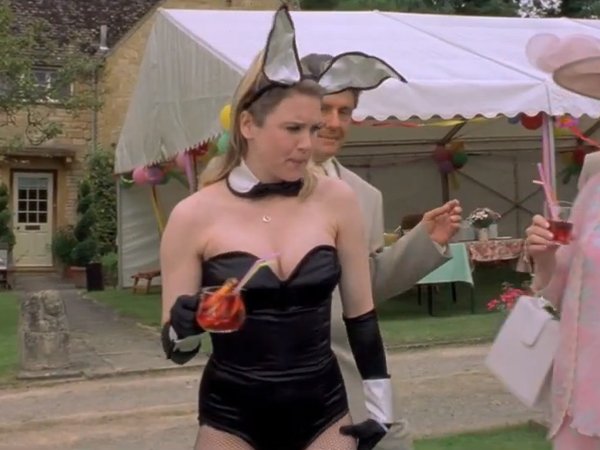Bridget Jones's Diary (dir. Sharon Maguire, 2001) — Review
Boiling down the chaos of modern life to just "two choices...permanent spinsterhood" or "vodka", perhaps the enduring appeal of Bridget Jones stems from its veiled nostalgia for the days when women couldn't vote. Helen Maguire’s semi-fictional superwoman burst onto the pages of the Independent in 1996, evolving from self-deprecating column to a media empire, spanning three films in as many decades. Regarding the Independent’s request for a column about her love life as too tragic, Maguire created Jones as a sort of Messiah for single women in their 30s: a half-human, half-imaginary being who could embody the most excruciating bits of human nature, and get duly crucified.
Bridget introduced the world (or maybe men) to the wonders of granny panties, fertility fears and solitary binge-drinking to Chaka Khan - all wrapped up with the plot of Jane Austen’s Pride and Prejudice. In other words, at least part of the film’s sticking power comes from the classic period chick-lit hook: secretly wondering if things wouldn’t be easier without the whole career bit.
The casting of sexy, smokefree Texan Renee Zellweger as Britain’s lumpy, nicotine-soaked sweetheart caused anguish at first. Aside from her infamous weight ‘gain’ (up to the size of a normal woman), Zellweger committed to the part by spending 3 weeks undercover as the intern at publishing house Picador. The resulting portrayal of the harrowed yet lovable singleton - bouncing between “office scoundrel” boss Daniel Cleaver (Hugh Grant) and decent if stodgy barrister Mark Darcy (Colin Firth) - ultimately nailed the balance of cringe and aspiration key to a good rom-com.
Not only Bridget, but her entire entourage of caricatured peers offers up a self-conscious statement of a nation’s most repressed instincts - primarily the glaring injustice of Bridget having to pursue a career as well as a husband. This is not, of course, to decry her as a counter-feminist- the film merely makes the case that Bridget and her own ‘Mr. Darcy’ are hauling some 18th century encumbrances into the 21st. Meddlesome parents, as inept as they are well-meaning, hound her about, brandishing gherkins on cocktail sticks, and warning that “you’ll never get a boyfriend if you look like you've wandered out of Auschwitz.” Warnings never to “dip your nib in the office ink”, meanwhile, sound as empty to the audience as to Bridget, thanks to the floppy-haired wilings of Grant in his prime. As to the legendary playground-style fracas that finally breaks out between Cleaver and Darcy: a joyful confession of ineptitude, after all their earlier jousting over pulling power and casual Cambridge name-dropping.
Bridget may have been dragged into harsh reality with the rest of us during successive instalments (the third of which saw the triple blights of Patrick Dempsey, Daniel Cleaver’s demise, and a suspiciously puffy-faced Zellweger). But back in 2001, this time capsule of indoor smoking, zero diversity, and rampant body dysmorphia twinkles on, hitting the sweet-sour punchline of the messy-woman narrative genre: ‘there but for the grace of god’.



